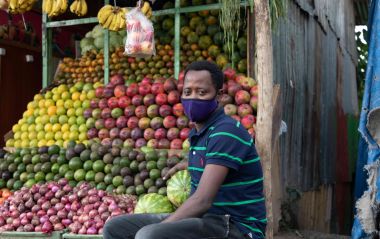There is substantial concern that global food insecurity is increasing as a result of the COVID-19 pandemic. Organizations such as the UN Food and Agriculture Organization (FAO), World Food Programme (WFP), and CGIAR are trying to get a clear picture of the growing challenges people may be facing, but the nature of the pandemic makes data on food security and daily living challenging to obtain. Because face-to-face surveys have largely not been possible during the pandemic, much of what we know about actual changes in food security status is coming from phone surveys. These surveys suggest large proportions of respondents are facing falling incomes; the World Bank reports declines in incomes and food security where they have conducted phone surveys.
These reported income changes suggest the pandemic has affected a large proportion of the world’s population and that the poor in particular face the threat of significant food insecurity. However, phone surveys typically do not allow us to quantify respondents’ changes in income. In other words, we know they perceive their incomes decline, but we do not know how much they have actually declined. As a result, analysts must make assumptions about the severity of income changes. Read more.
